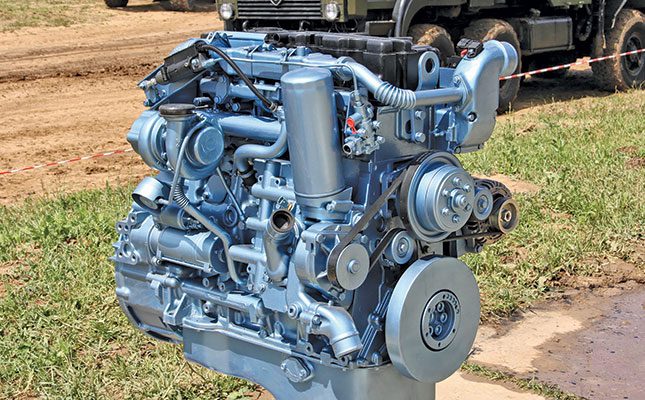
Photo: Wikimedia Commons
Petrol and diesel engines are two of the most commonly used types of engines in passenger vehicles. In agriculture, diesel engines are predominantly used for agricultural equipment, but on-farm vehicles, such as bakkies and SUVs, may be either diesel or petrol, depending on the type of car a farmer has bought.
Petrol
There are many advantages of petrol-powered vehicles over those of diesel engines. Some of these differences include:
- Petrol is more widely available than diesel in many parts of the world, making it easier to find a fuel station that sells it. Currently, diesel is also more expensive than petrol, although this trend may reverse in future.
- Petrol engines are generally quieter than diesel engines, making them more suitable for applications where noise levels need to be kept low.
- Petrol engines tend to have better acceleration than diesel.
Disadvantages of a petrol engine include:
- Petrol engines typically have lower fuel efficiency compared to diesel or hybrid engines, which can result in higher fuel costs and greater carbon emissions.
- Petrol engines produce more harmful emissions such as nitrogen oxides carbon monoxide and particulate matter than diesel engines.
- Petrol engines typically produce less torque (rotational force) at lower RPMs, which can impact towing capabilities.
- Petrol engines may have a shorter lifespan compared to diesel engines due to higher internal temperatures and stresses.
- Petrol engines require oil to lubricate and cool engine components, which can contribute to environmental pollution and geopolitical tensions over oil resources.
Diesel
Some of the advantages of diesel engines (other than those listed above) over petrol engines include:
- Diesel fuel is less flammable than petrol, which can reduce the risk of fire in case of a collision or other accidents.
- Diesel engines are ideal for long-distance driving and heavy-duty applications, such as trucks and buses.
However, there are also some disadvantages to diesel engines, which include:
- Diesel engines can be more expensive to purchase than petrol engines due to their more complex construction and emissions control systems.
- Diesel engines tend to have slower acceleration compared to petrol engines due to their lower RPM range.
Making a choice
The choice between a diesel or petrol car ultimately depends on your individual needs and preferences. Here are some factors to consider:
- Fuel efficiency. Diesel engines are generally more fuel-efficient than petrol engines. However, the difference in fuel efficiency may not be significant enough to justify the higher initial cost of a diesel car.
- Usage. If you plan to do a lot of long-distance driving or towing, a diesel engine may be a better choice due to its higher torque and better fuel efficiency. However, if you primarily use your car for short trips and city driving, a petrol engine may be more suitable.
- Maintenance. Diesel engines may require more maintenance and may have higher repair costs than petrol engines. However, they are often built to be more durable and have longer lifespans.
What car you choose, ultimately depends on your individual needs and priorities. It is important to research and compare the specific models and engines you are considering to determine, which one will best meet your needs.










